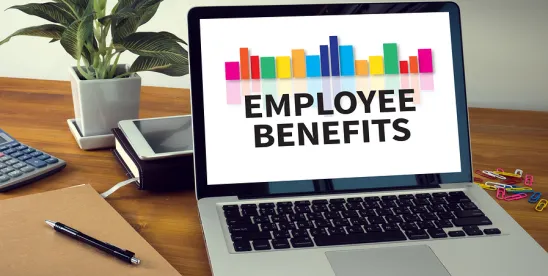On July 4, 2025, President Trump signed into law the “One Big Beautiful Bill” Act (OBBB), a sweeping piece of legislation that significantly reshapes the landscape of tax policy and public health coverage. While the bill’s broader tax and healthcare implications have dominated headlines, employers and plan sponsors should take note of several key provisions that directly impact benefit plan design, compliance obligations, and workforce strategy.
High Deductible Health Plans and Health Savings Accounts
- Telehealth Coverage - The OBBB permanently restores the telehealth safe harbor that lapsed at the end of 2024. High deductible health plans (HDHPs) can now continue to waive deductibles for telehealth and other remote care services without disqualifying enrollees from eligibility to contribute to a health savings account (HSA). This change is retroactive to plan years beginning on or after January 1, 2025.
- Direct Primary Care - The OBBB expressly permits HDHP enrollees to participate in direct primary care arrangements without jeopardizing their ability to contribute to an HSA. The OBBB also allows for HSAs to reimburse the fees for “direct primary care service arrangements.” To qualify as a direct primary care service arrangement, the services provided under the arrangement must be limited to “primary care services” provided by a “primary care practitioner” for a fixed periodic fee. For this purpose, “primary care services” do not include (i) procedures that require the use of general anesthesia, (ii) prescription drugs (other than vaccines), and (iii) laboratory services not typically administered in an ambulatory primary care setting. Also, as to any individual, no arrangement will qualify as a direct primary care service arrangement if the individual is covered by one or more such arrangements that have an aggregate fee exceeding $150 per month for individual coverage or $300 per month for family coverage. These changes are effective beginning January 1, 2026.
Employers sponsoring HDHPs may wish to contact insurers or third-party administrators and update enrollment materials and communications to employees to implement these changes.
Educational Assistance Programs
- Permanent Extension for Student Loan Repayment Benefits - The OBBB permanently extended the exclusion from income for employer-provided student loan repayment assistance under a qualified educational assistance program, which was previously set to expire at the end of 2025. Employers can now continue to offer up to $5,250 (as adjusted) annually in tax-free student loan repayment assistance.
- Inflation Adjustment - Beginning in 2027, the $5,250 annual cap on employer-provided educational assistance will be indexed for inflation, using 2025 as the base year. Adjustments will be rounded to the nearest $50, allowing the benefit to grow over time in line with the cost of living. Employers sponsoring educational assistance programs will likely need to amend their plan documents to take advantage of the adjusted annual cap.
Dependent Care Assistance Programs
The OBBB permanently raises the annual contribution limit for dependent care assistance programs (DCAPs) from $5,000 to $7,500 for single filers and married couples filing jointly, and from $2,500 to $3,750 for married individuals filing separately, effective for plan years beginning on or after January 1, 2026. Employers sponsoring DCAPs will likely need to amend their plan documents to provide for the higher limits and will need to update enrollment materials and communications to employees.
Other Fringe Benefits
- “Trump” Accounts - The OBBB provides for the establishment of “Trump accounts” that are akin to individual retirement accounts for minors. Generally, up to $5,000 (indexed for inflation) may be contributed annually to a beneficiary’s account prior to reaching age 18, must be invested in certain specified investments, and may be distributed after the beneficiary reaches age 18, subject to a 10% penalty tax for any distribution prior to age 59½ (subject to certain exceptions). Under the OBBB, an employer may make a tax-free contribution of up to $2,500 to the Trump account of a qualifying beneficiary who is an employee or a dependent of an employee. Presumably the dollar limitation applies on an annual basis, but the statute is unclear. Such contributions may be made on or after January 1, 2026, and must be made under a “Trump account contribution program” set forth as a separate written program of the employer.
- Moving Expenses - The OBBB permanently extends the exclusion from income for moving expenses paid or reimbursed by employers that was set to expire this year.
- Bicycle Commuting Expenses - The OBBB permanently eliminates the exclusion from income for bicycle commuting expenses paid or reimbursed by employers for tax years beginning after 2025. This exclusion had been temporarily suspended since 2018.




 />i
/>i
